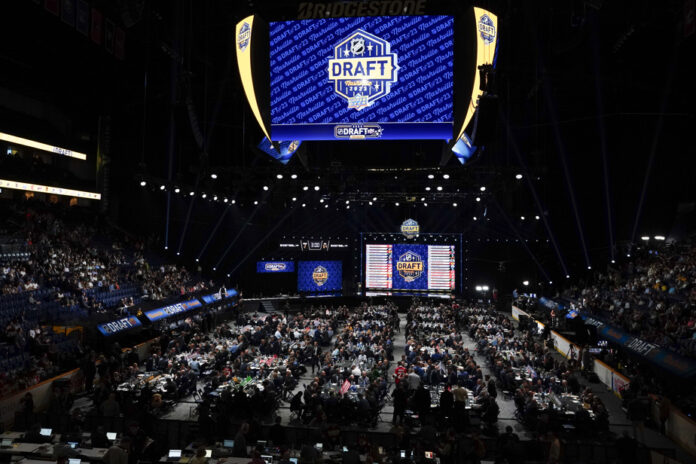Brad Treliving remembers when NHL general managers completed their shopping at the free agent market mere minutes after it opened.
Star players were leaving quickly, support ones too, and teams had a good idea of their starting line-up months before the start of the campaign.
The COVID-19 pandemic – and the resulting financial disaster – has contributed, at least so far, to CEOs changing their ways.
“Five years ago, you could hang the ‘Gone on Vacation’ sign as early as July 2,” said Treliving, general manager of the Toronto Maple Leafs.
However, since the salary cap has only been raised by a single US$1 million – it will stand at US$83.5 million for the 2023-24 season – and the league is still trying to recover from its financial setbacks caused by the coronavirus, rosters will have very little wiggle room by the time the free agent market opens on Saturday.
Since the 2019-20 season, which was cut short by the COVID-19 pandemic, the salary cap has only been raised by 2 million.
“We have to deal with a salary cap that has been stagnant for quite some time,” Vegas Golden Knights general manager Kelly McCrimmon said. It took some time for teams, fans and journalists to understand the consequences of such a situation. »
It was obvious this week during the NHL Draft in Nashville. Transactions were very rare, and those that did occur involving active NHL players were often associated with draft picks – or even, in some cases, “future considerations” – in the hope lighten the payroll and facilitate other decisions.
Certainly, a few star players could be available, but so far the calculations have not turned up anything attractive for Winnipeg Jets goaltender Connor Hellebuyck or San Jose Sharks defenseman Erik Karlsson, in particular.
“The trades that were made this week would never have been contemplated four years ago given the asking price for some players,” added McCrimmon, who traded veteran Reilly Smith to the Pittsburgh Penguins for a draft pick in order to be able to offer center Ivan Barbashev a contract extension.
“This is precisely where understanding the limits of the salary cap comes into play,” he continued.
Teams are also trying to secure the services of their restricted free agents more quickly, sometimes ignoring the famous “bridge contract” that was so common just a decade ago.
Instead, eight-year contract extensions are offered that allow young players to benefit from better job security and better prospects for the future.
As a result, there are fewer and fewer speedboats available on the market.
“Players want to agree to long-term contracts faster than before, which has implications for the deal market,” Penguins president of hockey operations Kyles Dubas said. I think it’s the result of a stagnating salary cap and teams trying to adapt, to adjust, to find ways to stay under the cap while still being competitive. »
Yes, players such as Dmitry Orlov, Ryan O’Reilly, Tyler Bertuzzi and Matt Dumba will likely become unrestricted free agents on Saturday.
Good players, yes, but never star players like those who were invited to great restaurants by desperate teams.
“That would be a good message to send to the agents,” Minnesota Wild general manager Bill Guerin said in awe. They believe the salary cap just went up by 10 million. »
The NHL free agent market will officially open at noon on Saturday.















